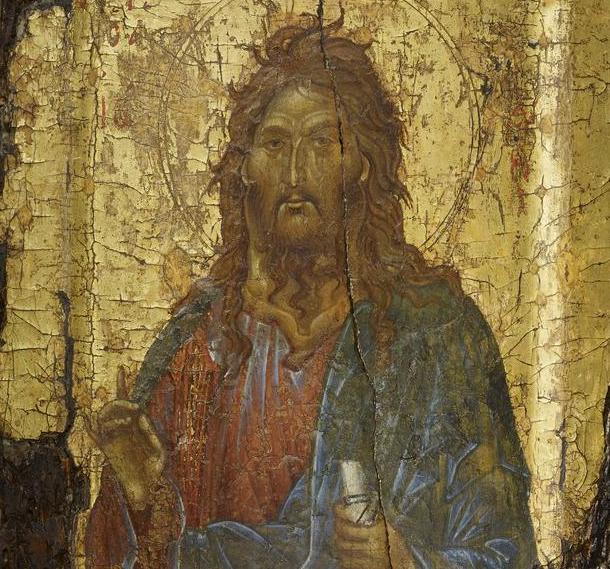Chapter Talk – Second Sunday of Advent – December 6, 2020, cycle-B
Last week I mentioned that at Christmas we are celebrating the historical birth of Jesus and as well the ‘second coming’, the birth of Christ in the soul. The following words from Cardinal Jean Daniélou give a context for what this ‘second coming’ means for our lives. He writes: “We must allow Christ to pervade our souls to the extent that he becomes all in all; we must, according to St. Paul’s beautiful expression, ‘put on’ Christ (Rm 13:14), trying to be what he was, such that we truly become his disciples. The whole of the Christian life is this progressive evangelization of our being, this shedding of the flesh, selfish and closed within ourselves, this opening up to Christ’s teaching that we must follow” (Prayer, p.73). ‘A progressive evangelization of our being’: this is a profound image for us to hold in our consciousness. We normally take the word ‘evangelizing’ as an extroverted activity. Here, we, in our inner life, are being evangelized. Each birthing forth of God’s life involves an inner transformation, an evangelizing experience where we become in mind and heart more Christ-like in our service, in our love, which opens us to deal with conflicts, and helps us face our fears and anxieties.
For this Second Sunday of Advent there is a voice calling out in the wilderness: “Prepare the Way” (Mk 1:3). This proclamation of John the Baptist to ‘prepare the way’ includes John’s call to a “Baptism of Repentance” (Mk 1:4-5). Why is ‘repentance’ so important for preparing to receive this new birth? The words of Jean Danielou shed light on this question: to have our beings ‘evangelized,’ is ‘preparing the way’. To shed our selfish and hard-hearted selves, we need this inner evangelizing, an evangelizing that happens through God’s Word. Going into the silent desert of the heart, descending beneath the noise of the many voices that vie for our attention we can hear the Divine voice: ‘Comfort, take comfort my people’ (Is 40:1); ‘Fear not your salvation is near’; ‘Do not be afraid, my love will never leave you’ (Is 54:10). The Advent Word of God is always a hopeful word; our task is to simply receive these words and let them evangelize ourselves, beginning from the inside.
Our Advent preparation is not asking big things. Each of us can simply reflect on the past week where stuff came up in our hearts: murmuring about this and that, conflicts among us, tensions in work exacerbated by fatigue, worries, fears and so on. None of this is surprising. It is part of what it is to be human. But John the Baptist’s proclamation is asking us to be more, in order to have more of God’s life, God’s new life becoming part of who we are right now. Let us not lose sight of our longing: we each personally need this birth, this community needs this birth, along with our world and Church.
John’s evangelizing message is “a message of conversion….” (p.39). In Daniélou’s words: “John the Baptist is an instrument of grace. Now, people’s hearts are hard. They are bound up in their lust and hatred. They are accustomed to their misery and cannot imagine that there could be something else. John the Baptist must therefore shake these hardened hearts” (p.39). What about allowing John’s evangelizing proclamation to ‘shake’ us up? To be evangelized means this according to The New Dictionary of Theology: “The Good News is at hand. This is not so much information about place or time of arrival as it is an announcement and unveiling of the fact that God has drawn close to us and that the power of God is available to be drawn upon. It is a conversion in how we think, experience, act, and value” (p.358-359). Holding on to the noise of our worries, fears, anxieties, criticisms, oppressive doubts and so on keeps at bay John’s evangelizing words. To allow ourselves to be shaken up so that we are open to change prepares us to receive the gift of God’s very Self: this ‘Wonder Counselor, Prince of Peace, Eternal Lord’ (Is 9:5), hope of all the ages. Imagine, dear sisters and brother, the impact of just small changes in how we ‘think, experience, act and value’. Clearly, we will be ready to receive the Coming One.
These final words of Jean Daniélou: “The one who bears witness to the light grapples with darkness….John appears terrible to them: terrible because he speaks in the name of the demands of love; terrible because he does not participate in the illusion of the world…” (Prayer, p.39-40). Out of his grappling with ‘darkness’ John’s speaking of the demands of love resonates even stronger….he has no time for the illusions of our world, no time for our excuses….for he knows the power and love of God is coming…So together let us take inside his evangelizing proclamation and be open to the conversion we need in order to be ready for God’s new gesture of love that will be born within us and in our very midst.
Sr. Kathy Devico, Abbess


